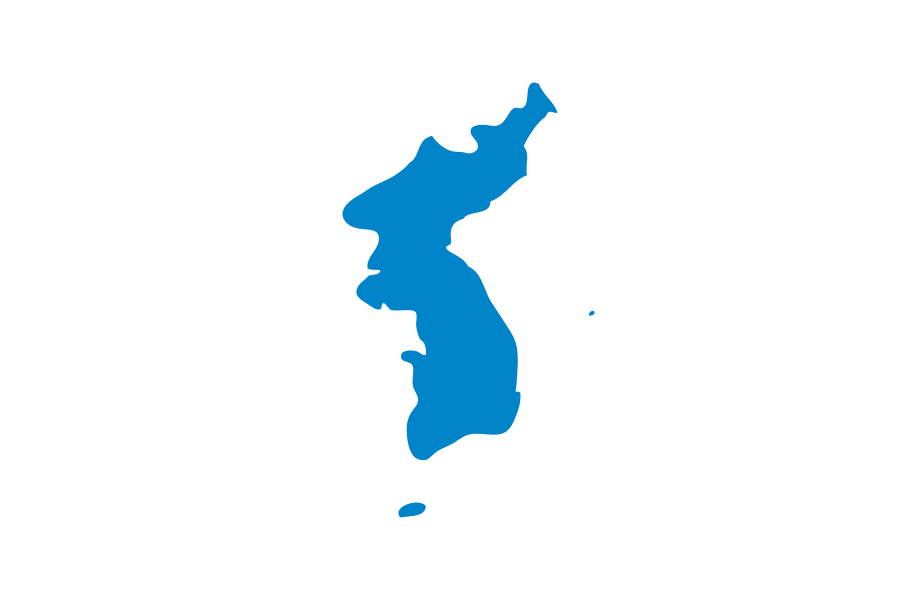Tyrrell: Korean unity essential to the Olympics
January 23, 2018
Last week, South Korea announced that it would march with North Korea under a unified flag for the 2018 Winter Olympics Opening Ceremony, and that the two countries would form a single women’s hockey team, the first time they have competed in a joint team since 1991.
The announcement was met with reactions ranging from praise to outrage. Many South Koreans are understandably angry that half of their women’s hockey team will now be replaced by athletes from the North, and others see the unified flag as nothing more than a meaningless symbol.
But I think that Lisa Collins, an expert on the Koreas for the Center for Strategic and International Studies, had it right when she told the LA Times that “The fact that they’re talking is a good sign.”
Whether or not this leads to dissolving tensions is beside the point. North Korea’s participation in the Olympics is a good thing because it’s insurance against retaliation by them during the Games.
To understand this, let’s go back to 1987, when South Korea was preparing to host the 1988 Olympics. North Korea, angry at being snubbed in their request to cohost the Games, plotted to bomb a South Korean airliner heading to Bangkok. The plot was successfully carried out by two North Korean spies, who planted a bomb on a South Korean airliner and escaped before it exploded and killed all 115 passengers.
One of the spies was able to kill himself via cyanide before he was caught. But the other, a woman by the name of Kim Hyun-hui, was captured and interrogated by the South for days.
Eventually, she admitted to the plot, claiming that her orders to bomb the plane had come from the very top: Kim Il-sung or his son Kim Jong-il. Not only that, but their intention was to disrupt the Olympic Games and scare off other countries from participating.
Although the bombing may have been successful, North Korea’s ultimate plan did not work, and the 1988 Olympics continued with no further disruptions.
However, the bombing did provide us with some insight into the North’s method of operation.
First, we know that the Olympics mean a lot to them. North Korea is a country built on pride, propaganda and self-reliance, and relishes any opportunity to display their superiority. The Games can therefore be viewed as somewhat of a bargaining chip for us.
Second, we know that North Korea’s only bargaining chip is the threat of a terror attack, whether it be nuclear or through some other method (such as bombing an airplane). So we can be sure that to anger them or deny them access to the Olympics is to risk incurring an attack like the one in 1987.
It’s unlikely that North Korea will change their weapons program or security calculus as a result of the South’s efforts at diplomacy. But I believe those efforts are worth it anyway, if only because including North Korea makes it unlikely they would aim an attack during the Olympics.
The 22 athletes and 230 “cheerleaders” North Korea is supplying is our insurance against violence during the Games, and as much as I feel for the South Korean athletes who are getting the boot, the safety of the athletes and spectators attending the Olympics is much more important.
Interestingly enough, a lot of our insight into the culture of North Korea comes from Hyun-Hui herself.
The former spy was initially sentenced to death, but received a presidential pardon once it became clear how thoroughly brainwashed she had been. Hyun-hui has described North Korea as less of a state than a cult, and said that even just hearing the way her interrogators spoke made it clear how much she had been lied to.
Today, Hyun-hui has warned against including North Korea in the Games, saying that Kim Jong-un is “using the Olympics as a weapon.”
I’m sure that she’s right. But the very anger South Koreans have shown at the North’s inclusion means that the chances of them reuniting with the rest of their peninsula are slim to none; it’s more likely that the North Korean athletes and cheerleaders exposed to the Olympic culture will be tempted to defect.
All of the South Korean women’s hockey team deserves to participate in the Olympics, and it’s also hard to stomach throwing the most oppressive regime in the world a bone. But that bone might just be enough to keep the Olympics peaceful.
And as for after the Games, only time will tell.







